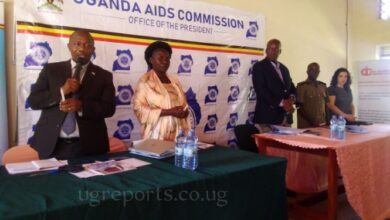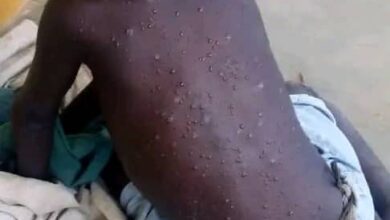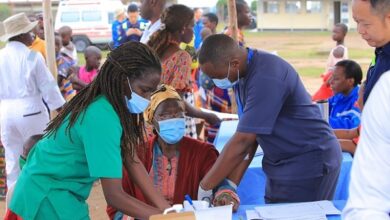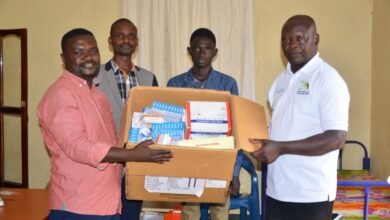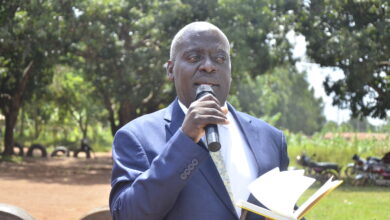UAC raises alarm over rising HIV prevalence in Bunyoro
He highlighted that in 2023, Uganda recorded 38,000 new infections, with the national prevalence rate standing at 5.1%.
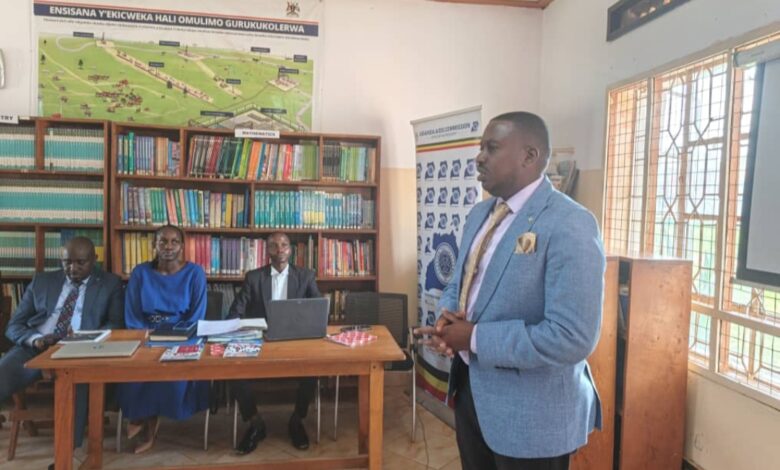
Hoima: The Uganda AIDS Commission (UAC) has raised concerns over the rising HIV prevalence in the Bunyoro sub-region, with Hoima City recording the highest rate at 9.6%, followed by Masindi District at 6.1% both significantly above the national average of 5.1%.
UAC officials and Hoima City leaders attribute this surge to the increasing population in the region, driven by major developments such as the oil and gas industry, Kabalega International Airport, and the Hoima Stadium.
They warn that without concerted efforts from all stakeholders including religious, cultural, and political leaders the goal of ending HIV infections by 2030 may not be realized.
According to Uganda AIDS Commission (2023) data, the country has 1,492,000 people living with HIV, including 910,000 females (6.6%), 490,000 males (3.6%) and 72,000 children (0.5%).
New infections totaled 38,000 in 2023, meaning 104 people contract HIV daily. These include; 22,000 females, 11,000 males and 4,700 children.
Additionally, 20,000 people died from HIV-related illnesses, with 8,200 females, 7,800 males and 3,200 children.
In a bid to accelerate progress towards ending HIV/AIDS by 2030, the Uganda AIDS Commission engaged with media practitioners in Hoima on Thursday to strategize on effective communication and advocacy efforts.
The meeting, held at Hoima Public Library, aimed to foster collaboration between the media and the UAC, recognizing the critical role that journalists play in shaping public opinion and influencing behavior change.
Dr. Zepher Karyabakabo, the Director of Policy, Research, and Programming at UAC, emphasized the need for a multi-sectoral approach to fighting HIV/AIDS.
He highlighted that in 2023, Uganda recorded 38,000 new infections, with the national prevalence rate standing at 5.1%.
However, he noted higher prevalence rates in urban areas, citing Hoima City’s HIV prevalence at 9.6% with 228 new infections, followed by Masindi District at 6.1% with 398 new infections. Dr. Karyabakabo also expressed concern over the decline in condom use, which currently stands at only 50%.
Hoima Resident City Commissioner (RCC) Badru Mugabi acknowledged the skyrocketing HIV prevalence in the city, calling it a major public health crisis.
He attributed the rise in infections to the influx of people due to oil and gas activities, as well as the presence of over a thousand guests in local hotels where “a lot happens behind the scenes.”
Mugabi also pointed out that tertiary students are being lured into free access to saunas, which in some cases serve as a hub for risky sexual behavior.
Hoima City Mayor Brian Kaboyo warned residents to take the HIV threat seriously, stating that the city is actively distributing condoms in hotels as part of the prevention efforts. However, he urged people to prioritize regular HIV testing and practice safe sex to protect themselves.
Lucky Glorious, a Project Officer at Hoima District Forum for People Living with HIV/AIDS, pointed out that stigma and discrimination remain major barriers to fighting the epidemic.
She noted that lack of awareness, social discrimination, and the high cost of Antiretroviral Therapy (ART) continue to fuel the spread of HIV. She called on all stakeholders to join hands in the fight against HIV/AIDS.
Leilah Bbaale, the Manager of Spice FM, stressed the need for continuous capacity building for media professionals to ensure that HIV messages are both creative and impactful.
She urged media houses to integrate HIV awareness campaigns into their daily programming to help achieve the 2030 goal.
Judith Namara Nisiima, a Board Member of the Uganda AIDS Commission, reassured the public that ARVs are still available, and the government is committed to ensuring continued access to treatment.
However, she noted that some people have begun hoarding ARVs due to fears sparked by the executive orders from the U.S. president, which affected USAID-funded partners providing services in local communities.
Do you have an advertisement or article you want to publish? Mail us at theugreports@gmail.com or WhatsApp +256757022363.


